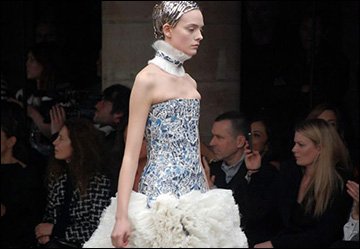Perfumery
History of perfumery and aromatherapy in China
Smells intoxicate us, excite, excite, delight, change the mood, and there are not enough words to describe them.
More than 5,000 years ago, humans learned to extract essential oils from plants and use them for medicinal purposes. Everyone knows Chinese medicine. It was in her that the ancient Chinese healers developed their system of herbal medicine. They, like the European alchemists, were preoccupied with finding the key to immortality, so they experimented with the smells of plants.
They believed that essential oils contain the soul of plants, and this is where magical powers are contained. Therefore, Chinese healers in one situation or another used incense for "negotiations with the gods." For example, to help a woman during childbirth, they burned artemisia (wormwood), suggesting that the soul of the plant would appease the gods.

Chinese doctors combined aromas and herbs with acupuncture and massage. In 1000 - 700 BC a handbook on herbs - "The Great Herbalist" was compiled, which contains more than 350 names of medicinal plants. The herbalist was compiled by Emperor Shen Nung.
How seriously the Chinese took aromas can be judged by the surviving written documents. For example, the Chinese philosopher Wang Wei of the Tang Dynasty (618-907) wrote to his disciple: "Aromas act on you purifying and restoring, strengthening your energy and filling your thoughts with calmness and pacification."
The famous 17th century writer Dong Yue wrote: “My smokeless incense has a scent that stimulates spiritual powers. The aromas of trees and herbs of the whole universe came together in them ... ”. The Chinese associated incense with philosophy - they considered those types of perfumery smells that do not suppress the smells of things, but even give way to them.

The Chinese have used aromatic substances since ancient times. It is believed that it was Confucius (Kong-Fu-Tse) who owned the words: "Smoking expels a bad smell, and candles illuminate the hearts of people." If these words were spoken so long ago, then from this we can conclude that both aromas and candles were widely used in the life of Ancient China.
Smoking aromas was so popular that it seemed that the whole of China was involved in the production of incense sticks. After all, according to custom, three sticks were lit in the house in the morning and in the evening. The sticks were placed in special vessels, which had an exquisite shape and were placed at the feet of various idols.

Incense was also smoked in the imperial palace. Smoking incense is a kind of honor to the emperor.
And of course, incense is also used in funeral rites. The body of the deceased is washed, anointed with the best incense, dressed in the best clothes, his portrait is placed in the center of the room, and next to it is a vessel with smoking sticks. When the funeral procession moves, incense is burned all the way.

Chinese perfumery is not so diverse. In addition to smoking sticks, some aromatic oils and essences are used. The favorite scent of the Chinese is musk, which they value not only for its pleasant smell, but also for the fact that, in their opinion, it heals many diseases.
In ancient China, beauties neglected frequent bathing, but decorative cosmetics were highly prized and abundantly applied to the skin.
And today in China many customs and traditions in relation to perfumery are preserved, despite significant changes in everyday life. The perfumery of China is in parallel with the scents of the Chinese national cuisine. The main scents in the events of the Chinese family are the scents of magnolia, jasmine, lotus, camphor, tea tree, anise.
The aroma of musk occupies a significant place in Chinese perfumery. This is due to the fact that a musky species of musk deer once lived in China.It is believed that it was from China that Marco Polo (circa 1254 - 1324) brought a drug from musk. But there is another version, to which more historians are inclined - musk, used as a fixative, Europe learned from Indian perfumers.
Chinese medicine has always used herbs in combination with acupuncture and massage. Children were put on bags with camphor around their necks, which protected from diseases and activated the brain. In Tibetan monasteries, bundles of herbs were walled up in the walls, which created a spiritual atmosphere. Taoist magicians used resin and seeds of pine and cypress to prolong life.

The rose was also loved in China. Apparently, even the great Confucius was fond of this beautiful flower, singing her as the queen of flowers. There are many lines in his poetry dedicated to her beauty and smell. Roses grew in great numbers in the imperial gardens. From them they received a pink essence, which brought large revenues to the state treasury. Many books in the imperial library were dedicated to the rose.
In addition to roses in China, preference is given to jasmine, sandalwood, patchouli ...
Since ancient times, the Chinese have also highly valued the fruits of the cedar, which is used for aromatization of airhanging them in the rooms. There are many fragrances at the disposal of Chinese perfumers.
In 557-479 BC. Confucius wrote about the meaning of a good smell: "Your virtue is like a perfume that gives beauty and satisfaction not only to your heart, but also to those who know you."

Perfumers can describe and name up to two thousand or more shades of smells. And not only perfumers, in Tibetan monasteries such people were brought up from childhood. So they could determine by smell not only what it is or who it is, but also the age, sex, character of a person, and even diagnose a disease and reveal the relationship of people.
In China, India and Persia, the technology for producing essential oils was at such a high level that many processes remain unchanged today.
"Incense floats in the air, not fading for a moment, enveloping everything around." "The virtue of incense is peace and silence ..."
Tell friends:
Comments and Reviews
Add a comment
Rating news
Shades of clothing that make women look younger
What shades of hair make women younger: rules and photos
Funny wedding dresses - photos and ideas
12 most expensive down jackets for the winter
How to look 25 at 40: tips from supermodels
Beautiful schoolgirls
Anti-aging haircuts and hairstyles for women
Fashionable skirts for autumn and winter
Fashionable women's trousers for the cold season
Fashionable and stylish sandals for summer 2020
Spring-summer 2021
 Fashionable dresses and tops with thin spaghetti straps
Fashionable dresses and tops with thin spaghetti straps
 Bandana tops: how to wear stylishly and beautifully
Bandana tops: how to wear stylishly and beautifully
 How to put together the perfect men's wardrobe for the summer
How to put together the perfect men's wardrobe for the summer
 Fashionable shorts for spring-summer 2021
Fashionable shorts for spring-summer 2021
 Fashionable skirts for spring-summer 2021: a guide to online shopping
Fashionable skirts for spring-summer 2021: a guide to online shopping
 The most fashionable dresses spring-summer 2021: styles and colors
The most fashionable dresses spring-summer 2021: styles and colors
 Fashionable total look 2021: ideas of images and trends
Fashionable total look 2021: ideas of images and trends





